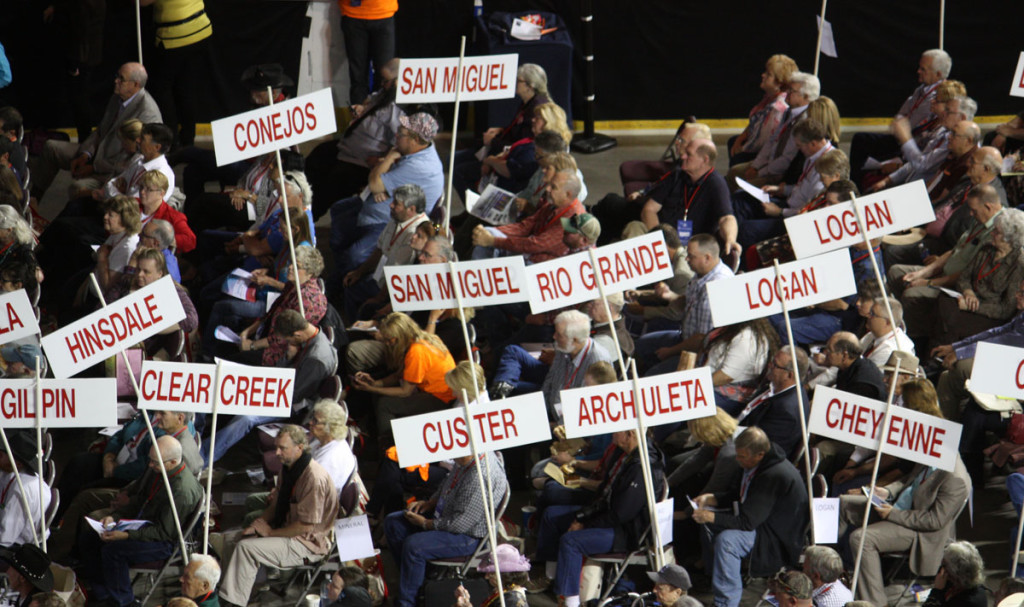If the Republican Party had superdelegates, could they have derailed the Donald Trump nomination and thus prevented the humiliating rout the party faces in November?
That was suggested recently by columnist Charles Lane in the Washington Post. Democrats have superdelegates, he noted, and they “served as a fail-safe, protecting the party against hostile outside takeover” by the likes of Bernie Sanders, who until last year “thought himself too pure a progressive to actually join the party he presumes to lead and to lecture.”

“If only the Republicans had such a circuit breaker!” wrote Lane. “Instead they were left at the mercy of the untameable intruder.” Trump, who has been a Republican only slightly longer than Sanders was a Democrat, “inflamed” primary voters “by attacking the GOP and its leaders.”
If Trump loses, he could take his party — which he has practically disowned — down with him. It could easily lose control of the Senate and even the House.
Reason enough, one would think, for the GOP to create a firewall against an out-of-control mobocracy in time for the 2020 election. Sure, give democracy a nod by letting ordinary party members run for delegate slots, but grant delegate status automatically to elected officials, party officers and distinguished party leaders no longer in office. Ordinary delegates would have to vote for the candidate their state supported in their primaries, but superdelegates are free to vote their druthers.
The Democrats had more than 700 such superdelegates at their convention in Philadelphia, 15 percent of the total, and almost all of them committed to Hillary Clinton in advance. They amounted to Clinton’s margin of victory.
![]() To be sure, the Republicans have some automatic delegates — the party chairman and two national committee members from each state and three territories — but they amounted to only 7 percent of the total. What’s more, they were not free agents but had to vote for the candidate their state selected.
To be sure, the Republicans have some automatic delegates — the party chairman and two national committee members from each state and three territories — but they amounted to only 7 percent of the total. What’s more, they were not free agents but had to vote for the candidate their state selected.
The Democrats created their superdelegate system in the wake of George McGovern’s humiliating 49-state defeat in 1972 and have been tweaking it ever since. Will the GOP try to do the same after Nov. 8?
No, say a couple of leading Colorado Republicans. They are proud of the fact that their party is more democratic than the Democrats’ and think it can recover quickly without turning its national convention it into an elitist gathering.
Dick Wadhams, who served as state GOP chairman from 2007 to 2011, sounded almost guilty about his role as an automatic delegate to the 2008 convention. “I didn’t think it was right,” he said,
He said he might not agree with Trump “but he won the nomination fair and square. Normally the process works in producing a strong nominee — it just didn’t this time.”
“The last thing the party needs is to start tinkering with the nomination process in order empower elected officials and party leaders,” he said. The Trump candidacy is a “phenomenon of 2016” that isn’t likely to be repeated.
The ever-optimistic Wadhams recalled that Colorado Republicans have rebounded fast from previous disasters. In 1974, an off-year election in the wake of Watergate, the Republicans were “emasculated,,” losing control of the Colorado House, which it had dominated 37-28, and most state offices. But the GOP took the House back two years later, and in 1978 the late Bill Armstrong ousted Democratic U.S. Sen. Floyd Haskell. In 1980 Colorado helped Ronald Reagan get elected president.
Wadhams said he is “amused” by commentators who ask whether the Trump candidacy will lead to the death of the GOP. “Will we all become Democrats?” he asked. His optimism bubbled so high he even suggested the possibility of a Republican being elected governor in 2018. (The party has elected just two governors in the last 60 years, John Love and Bill Owens.)
Republican Secretary of State Wayne Williams didn’t think superdelegates could have prevented Trump’s nomination. After all, there were originally 17 GOP presidential candidates and superdelegates wouldn’t have united behind a single Tump alternative anymore than the regular delegates did.
“I’m hesitant to say we want to make a long-term decision on the basis of a single year,” he said. Superdelegates worked for the Democrats because they had only two serious candidates.
Williams noted that Trump did well in open primary states and poorly in caucus states, like Colorado, which is why most Colorado Republicans want to keep caucuses. But Propositions 107 and 108 on this year’s ballot could result in binding presidential primaries open to the unaffiliated.
That’s why the national GOP is likely to explore various options, including superdelegates, in the wake of the probable disaster next month.
Ironically, the Sandersistas in the Democratic Party, still upset by Clinton’s nomination, may try to eliminate or at least weaken their party’s superdelegate system. They’ll have to do it without their leader, of course, who left the party right after losing the nomination at the convention and went back to being an independent socialist.
Longtime Rocky Mountain News political columnist Peter Blake now writes once a week for CompleteColorado.com. Contact him at pblake0705@comcast.net You may re-publish his work at no charge and without further permission; please give full credit to Peter Blake and www.CompleteColorado.com.


